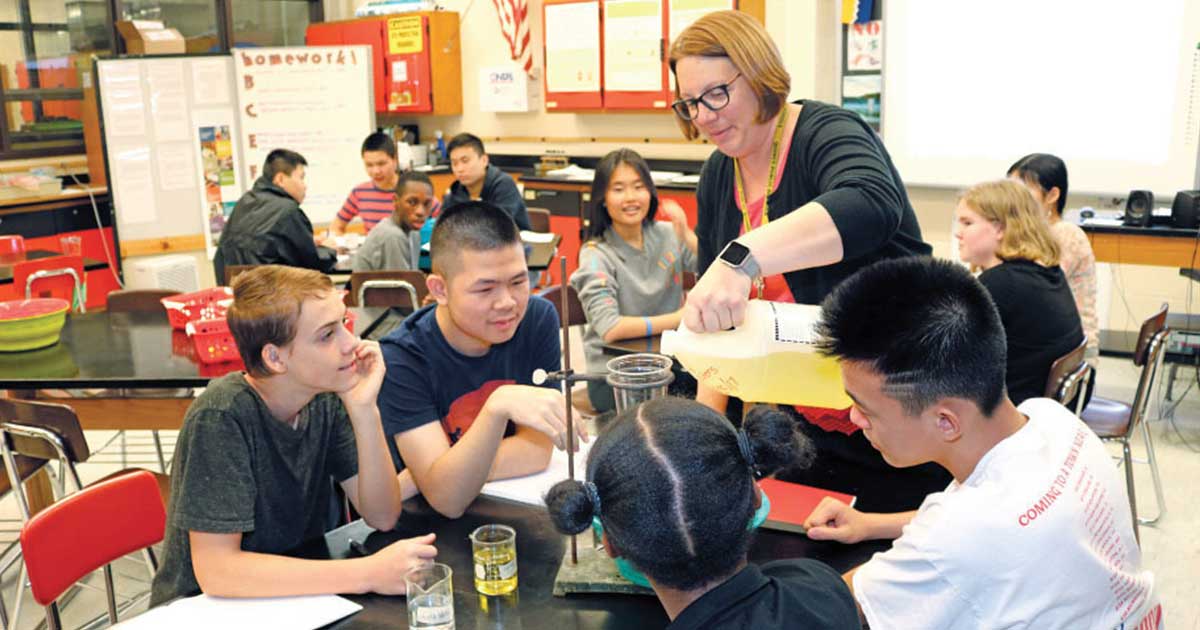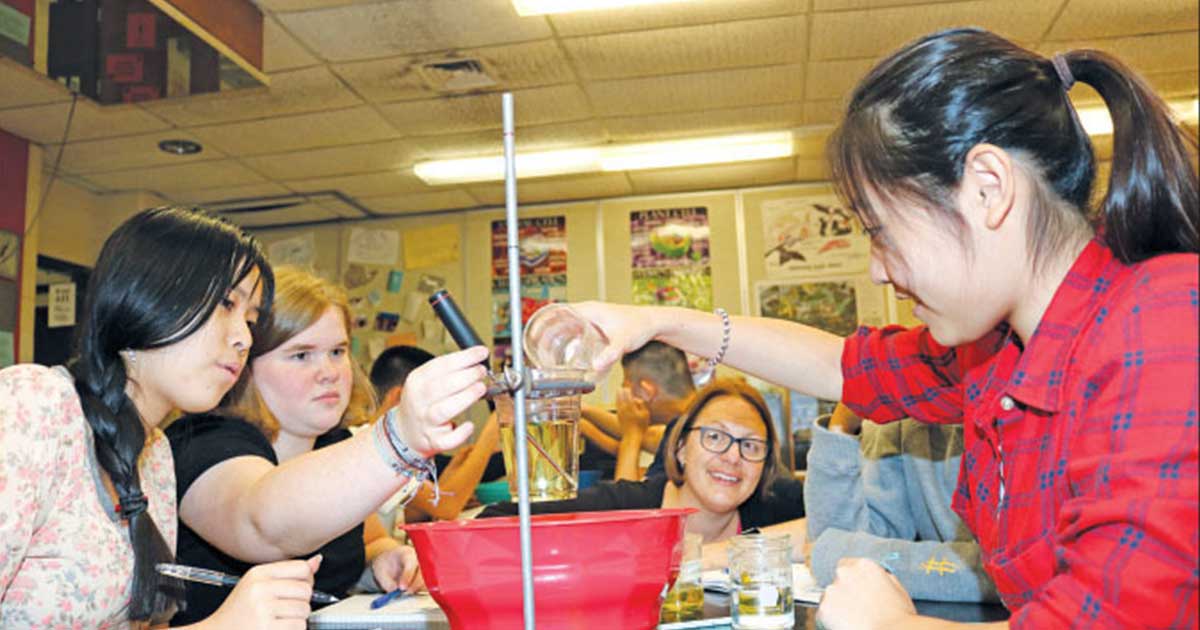Teacher of the Year makes science cool
Teacher of the Year makes science cool
Scott McLennan,
Communications Specialist

Cara Pekarcik is the 2018 Massachusetts Teacher of the Year because she was in the right place at the right time. Sort of.
Pekarcik already had a very good reputation as a dynamic teacher who had a knack for engaging students in the study of science.
But her involvement in an educational expedition to Antarctica and the way she shared that unique experience with students and colleagues back at North Quincy High School really highlighted her teaching gifts right when nominations were due for the statewide honor.
In 2016, Pekarcik, a member of the Quincy Education Association, participated in the PolarTREC program, joining a team of other educators and scientists on an icebreaker that served as a floating laboratory in the Southern Ocean.

Over the course of the six weeks she spent on the expedition — which overlapped with the start of her 11th year as a teacher — Pekarcik kept a journal that her students and other school staff could read online, and she was able to have a video of her at work live-streamed to the high school’s auditorium. She stayed in touch with her own students, whom she had yet to meet, and crafted assignments that took advantage of her unique "classroom."
When Pekarcik returned to her normal duties, high school Principal Robert Shaw sat in on a couple of her classes.
"Basically, I saw how different it was — what she brought to the staff, to the students and to the community," Shaw said. "I was looking for a way to recognize that and remembered QEA President Allison Cox saying to me that Cara’s work might make her a good candidate for Teacher of the Year."
Cox said that Pekarcik demonstrates the passion that public school educators bring to their work.
“The most important thing I can do is to encourage my students to explore.”
Cara Pekarcik, 2018 Massachusetts Teacher of the Year
"Cara was willing to travel halfway around the world to enhance her own knowledge. And she is able to share that experience in such a way that everyone she connects with benefits from it," Cox told MTA Today. "We are very fortunate in Quincy to have Cara and so many other wonderful, dedicated educators who provide high-quality instruction and are great role models for our students each and every day."
In May, the Department of Elementary and Secondary Education announced that Pekarcik had won the honor, staging a presentation ceremony with students and colleagues at her school. Pekarcik was also honored at the State House.
"I don’t see this as being the greatest teacher, but the award conveys that I represent great teaching," Pekarcik said during an interview over the summer. "Believe me, I never claimed to be the best or perfect or someone who doesn’t make a mistake."
Still, some may find it remarkable that someone who did not originally set out to be a teacher is now recognized as an outstanding representative of the profession. Pekarcik grew up in Western Pennsylvania and knew from a young age that she wanted to be a marine scientist. Upon completing college, Pekarcik worked at the Whale Center of New England in Gloucester.
But she felt stuck in her career and grew more interested in education; in fact, Pekarcik traces her teaching career back to the "lessons" she delivered on whale watch cruises.
She pursued a teaching degree and then sent out a bunch of applications. Mary Young, then the science department head at North Quincy High School, liked Pekarcik’s background in research and offered the aspiring educator the job she holds to this day.
"I thought to myself, ‘What! Are there no other applicants?’" Pekarcik joked. "But she was confident when I was not."
Pekarcik teaches various levels of biology, working with freshmen on introductory lab procedures and scientific concepts up through seniors taking electives in subjects such as zoology. Her classroom is full of displays and relics connected to her passion for ocean life.
Yet there is orderliness to the array of equipment used at the tables where students work together on experiments. On a recent lab day dedicated to studying how the body regulates vital systems, students laughed and joked as they used, among other things, plastic cups adorned with images of Homer Simpson to learn about homeostasis — or "Homerostasis." Pekarcik harnessed the students’ interests and energy in a manner that clearly kept them on task.
Pekarcik knows that many of the students she teaches will not end up in fields where they need to directly apply the scientific knowledge she imparts. But she does see immense value in using a science curriculum to teach students how to grow confident in forming and sharing their own views.
"The most important thing I can do is to encourage my students to explore," she said. "I have a number of students who, through our writing and our projects, come out of their shell. They tell me, ‘I’m not going to be a scientist, but science is cool.’"
This story initially appeared in the Fall 2017 edition of MTA Today.
